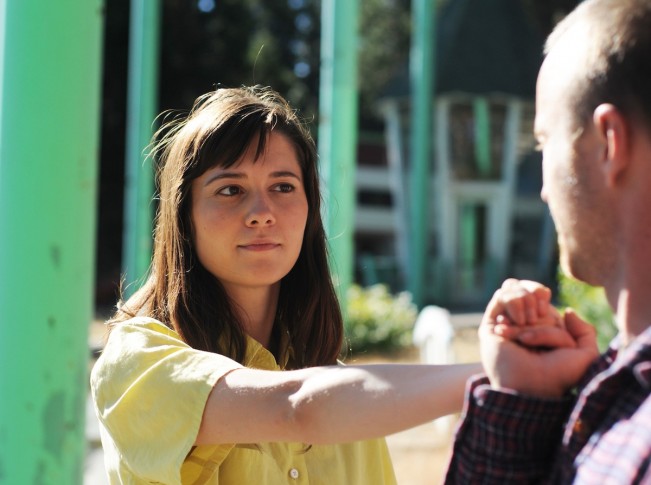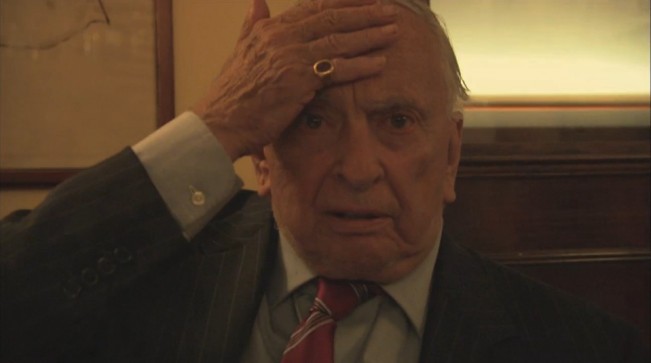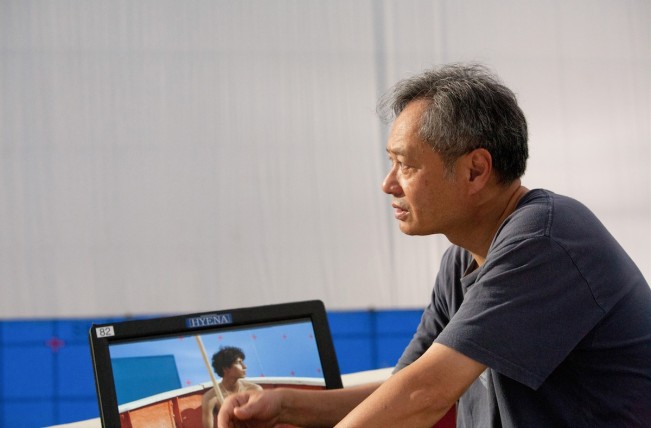Movie City Indie Archive for March, 2013
Trailering GORE VIDAL: THE UNITED STATES OF AMNESIA (2’30”)
Gore Vidal: The United States of Amnesia Trailer from Theodore James on Vimeo.
Trailering Assayas’ APRES MAI (Something Is In The Air) In US, Oz, France + 1 clip
So good, so beautiful.
Only 9,811,125 Views For Ilya Naishuller’s “Biting Elbows: Bad MF”? (NSFW)
MTV’s report: “The first scenes were shot in January 2012 and include the alpine skiing sequence, followed by several days of shooting in an office, for a total of eight days over the course of a year. “I just wanted it to be a fun ride,” he said of the filming, which took place with a mostly volunteer crew of friends on a handheld… GoPro action video camera. “I knew right away it would have massive appeal because I enjoyed the hell out of it and I was surprised nobody had shot anything like this before.” Professing to be a huge fan of video games and Prodigy’s 1997 video landmark “Smack My B—- Up,” which offers a similar look at debauched first-person action, Naishuller said his biggest influence was actually the legendary opening POV robbery scene in Oscar-winning director Kathryn Bigelow’s 1995 cyberpunk thriller Strange Days.”
Russia Today interviews Naishuller.
Nashuller’s VK page.
“Elizabeth Olsen and Eric Ripert Prepare Wild Boar Ragu” (23’35”)
True/False And The Tradition Of The March March
Come rain, shine or snow—sometimes all three at once—the True/False film festival christens its long-end-of February-start-of-March weekend with a March March through the streets of Columbia, Missouri on March 1, led by costumed locals of all ages and levels of creative investment. In 2008, the March was led by Chicago’s punk marching band, Mucca Pazza, who didn’t take to the streets this year, but to the stage of the Missouri Theater soon after. Still, there were goofy and inscrutable costumes that may or may not relate to any nonfiction films, as well as a few hundred happy faces, drumming, and snowflakes making everything more brisk. Plus bicycle wheels held aloft in flames.
And a polar bear shall guide the way.

Dozens more gathered at the Boone County Courthouse. A surly young guard shouted at anyone framing their friends against the building. “You can’t photograph the building! Stop taking pictures of the building! It is NOT allowed!”
Handmade flags of the ten-year-old T/F logo dotted the parade route.
Pre-March March from Ray Pride on Vimeo.
Billy Weber on “BADLANDS and the Art of the Voiceover” (4’21”)
Trailering Assayas’ SOMETHING IN THE AIR (2’27”)
Deeply personal, tactile, dreamy memory piece from Olivier Assayas, aka “How I Didn’t Know I Was Becoming a Filmmaker.” Très, très bon.
DVD: Smashed, This Must Be The Place, Hipsters

There’s this thing called state-dependent recall: you fall in love drunk in a bar, you better be prepared to stay drunk to stay in love. That tavern truism sings through James Ponsoldt’s Smashed, a light-on-its-feet drama of a star-crossed Los Angeles couple next door, happily married yet boozily adrift, until one day she realizes she’s crossed a line. Tactile and breezy and specific and funny nonjudgmental, it’s a small-budget film with the largest of hearts. Part of that is Mary Elizabeth Winstead as Kate, a exuberant partier and schoolteacher of small children, twentysomething, dressed in an Angelino uniform of long dresses and bare legs and flip-flops in eternal, infernal California climatic temperance. (In a moment of clarity, she describes smashed Kate: “I would piss my pants and would still be cute.”)
 “We say a lot of times that it’s a love story and a coming-of-age story, it’s a portrait of a marriage seen through the eyes and experience through the eyes of the wife,” Ponsoldt told me in October at the time of the film’s theatrical release. “They’re closer to 30 than they are to 20 but they’re emotionally stunted because of the drinking. For a long time, their emotional growth stopped.” Read the full article »
“We say a lot of times that it’s a love story and a coming-of-age story, it’s a portrait of a marriage seen through the eyes and experience through the eyes of the wife,” Ponsoldt told me in October at the time of the film’s theatrical release. “They’re closer to 30 than they are to 20 but they’re emotionally stunted because of the drinking. For a long time, their emotional growth stopped.” Read the full article »
Excerpting ¡VIVAN LAS ANTÍPODAS! (6’02”; 2’13”)
VIVAN LAS ANTIPODAS! (2011) Official Excerpt from Richard Lormand on Vimeo.
Why isn’t this on a big screen in the U S of A?
Read the full article »
DVD Interview: Ang Lee On Water

A couple days after its first exposure in New York City to outside audiences, Ang Lee traveled to several cities to introduce and talk about Life Of Pi. Down the stream would be his second Oscar for Best Director and, as of March 11, a $599,162,614 theatrical gross (80% of which would come from outside of the United States). We talked in October 24, 2012 at the Chicago Waldorf-Astoria, largely about images, water and weather.
PRIDE: How dare you! You’re not supposed to make a film that’s beautiful in every frame. The eyes need some rest.
LEE [laughs]: Thank you. It’s very challenging.
PRIDE: There are so many kinds of physical beauty in the film. Nothing looks ordinary. Each setting, from a childhood his Pondicherry, India, to the many, many days on the water, even the grown-up Pi’s apartment in Montréal, have only as many specifics as a storybook.
LEE: I’m glad you say that. That wasn’t actually my goal; I can’t make a visual film. It never occurred to me. People say about the visual thing… I think: it has to be a movie about ocean, about India, so just naturally… I’m not even a visually trained person, I’m dramatically trained. Visually, I rehearse the scene before I decide how to shoot it.
PRIDE: Not only storyboards, but pre-viz, a pre-visualization in motion?
LEE: Yes. Maybe because I visualized it—because I had to—because it’s so expensive. I animated the whole ocean part before I make the movie, to raise the money. It’s totally different from every other movie I’ve made, maybe that’s why, because I forced myself to pre-visualize them. But people are saying to me that it’s beautiful, it never occurred to me. I was just making it!













